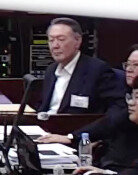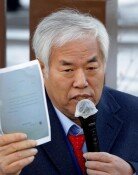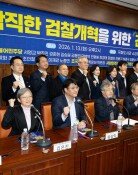[Op-Ed] The Next Key World Currency
[Op-Ed] The Next Key World Currency
Posted March. 26, 2009 10:52,
On August 15, 1971, then U.S. President Richard Nixon made an emergency declaration that rattled the global economy. He announced that Washington would not exchange gold for dollars and slapped a 10 percent surcharge on imports to help the U.S. dollar stay afloat and reduce the trade deficit. The Nixon shock destroyed the Bretton Woods money management system, or the standard under which dollars could be exchanged with gold only and other countries pegged their currencies to the greenback. Even after the change, however, the dollar has remained the preferred currency used in trade and financial transactions.
People`s Bank of China Gov. Zhou Xiaochuan has proposed a sweeping overhaul of pushing the International Monetary Funds Special Drawing Right as a global super-sovereign reserve currency. Instability of the dollars value benefits neither the issuers nor users, he said. Zhou plans to suggest that the introduction of a new key currency at the Group of 20 summit in London April 2. China is raising its voice on the need for reform of the global monetary system for two reasons: an official and noble cause and promotion of the Chinese yuan as an alternative to the declining greenback.
Dollars still account for a large share of foreign exchange reserves worldwide. That means a new key currency is unlikely to replace the dollar in the short term. At the same time, however, the dollar can no longer yield tremendous influence in the global market. Barry Eichengreen, a professor of economics at the University of California, Berkeley, said the other option is the euro. The dollar is unlikely to lose its status as the key currency but will lose its monopolistic status, he said. Along with Chinas attempt to promote the yuan, the European Union and Japan are also upping their efforts to strengthen their currencies. Russia, India, Brazil and Australia agree that the world needs a new monetary order.
Crisis always creates a new order. World War II contributed to the creation of the Bretton Woods system. The Nixon shock bore the Smithsonian Agreement and later created the Kingston System, which was based on floating exchange rates. The latest global financial crisis will also invite changes. Korea must properly respond to the global competition over a new key currency and promote its own national interests.
Editorial Writer Kwon Sun-hwal (shkwon@donga.com)



![[속보]국힘 윤리위, 한동훈 제명 결정…장동혁호 ‘뺄셈 정치’ 가나](https://dimg.donga.com/c/138/175/90/1/wps/NEWS/IMAGE/2026/01/14/133151701.1.jpg)



